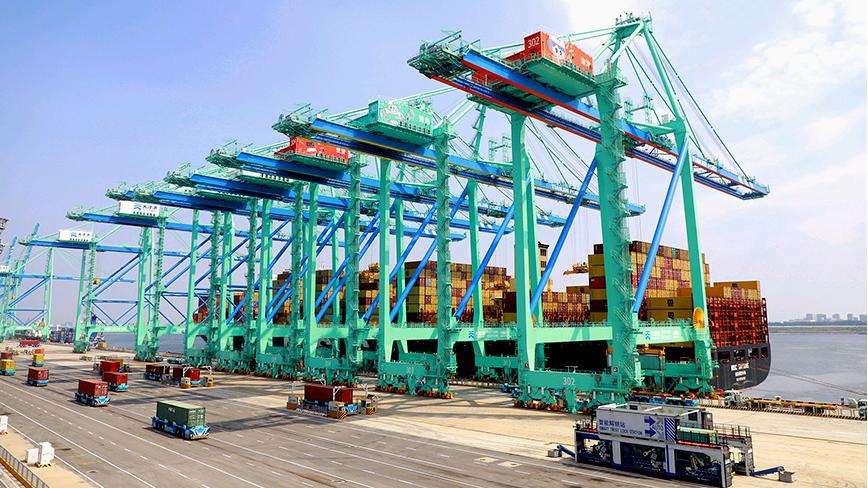US should discard its double-face approach to China
US Secretary of State Antony Blinken and Chinese Foreign Minister Wang Yi held a meeting on the margins of the 79th UN General Assembly in New York on Friday. The divided world body, as exposed by the general debate over the Middle East and Ukraine crises at the UN, meant the two sides went straight to the point in their discussions on a range of issues of common concerns.
Although both sides agree that the discussions were "candid, substantive and productive" as before, the news brief they released respectively after the meeting clearly indicates this was perhaps another chicken-and-duck dialogue.
Yet, despite their divergences on a wide range of issues, they still think it is necessary to maintain communication on them.
This momentum has gradually been consolidated through the joint efforts of the two sides to stabilize the Sino-US relationship since US National Security Advisor Jake Sullivan's visit to China in August — perhaps an expedient of the Joe Biden administration before the election — with the unfolding of bilateral exchanges on climate change, drug control, technology, commerce, trade, finance, and security.
There is no doubt that China and the US need to find a way to live alongside one another in peace. To that end, the two sides should continue to implement the important common understandings of the two presidents in San Francisco, engage in dialogue and cooperation, and properly manage differences to work toward stable, healthy, and sustainable development of bilateral relations. These efforts should never become a makeshift to the US administration but its long-term pursuit.
Notably, Blinken and Wang agreed on opening a new round of consultations on Asia-Pacific affairs in due course, which, if implemented well with the good faith of both sides, will be conducive to helping cool down the situations in the region.
The US' regional allies in the Asia-Pacific that play an important role in doing the US' bidding to provoke China on the front are expected to closely follow these talks, which can provide them with a good opportunity to understand that the focus of the US' China policy is to seek peaceful coexistence. That can help prevent the US' proxies from going too far in playing their assigned role.
That, as Blinken emphasized, Washington recognizes the importance of using diplomacy to responsibly manage competition, to candidly discuss areas of difference, and to make progress on areas of cooperation that matter to the world should prompt these US proxies to reflect on their one-sided pro-US diplomacy.
The division of the US, as exposed by the approaching US presidential election, should also remind them of the inevitability of reviewing their all-in approach to bet the future of their countries on merely one wing of the US' China policy.
In his meeting with the top US diplomat, Wang hit the nail on the head in noting that whether the positive momentum in the two sides' joints efforts to repair ties can be sustained will depend on whether the US side can stop approaching China with two faces: On the one hand encircling and suppressing China brazenly, and on the other hand, having dialogue and cooperation with China as if nothing is wrong.
The latest move in that vein is that US Treasury Secretary Janet Yellen said on Thursday that the US' economic ties with China are closer now despite recent tariff hikes and ongoing trade tensions, ignoring how these irresponsible tariffs have been hurting both sides' common interest.
China is firmly opposed to US suppression of trade and technology. National security should not be politicized, and "small yard, high fence" should not become "big yard, iron curtain".
That double-face approach is also attributable to the US' regional allies' misjudgment of the US' China policy. With the rising tensions in the Asia-Pacific, Washington now has enough reasons to worry that, if that misjudgment is continued to be allowed to exist and being acted upon accordingly, the tail will wag the dog.
Since the US has expressed multiple times that it has no intention to have conflict with China, then fundamentally, it needs to establish a rational perception of China, and find the right way to get along with it. Washington needs to carry out dialogue with respect, advance cooperation in the spirit of reciprocity, and address differences with great prudence, rather than act willfully as it sees fit from a position of strength or use previous mistakes as excuses to make more mistakes.
Photos
Related Stories
- China-U.S. military communication helps mutual understanding, risk control: defense spokesperson
- China opposes U.S. deployment of mid-range-capability missiles in Philippines
- China slams United States' touting of so-called "China military threat"
- China reiterates opposition to U.S. tariff hikes on Chinese goods
- Feature: Flying Tigers' legacy nourishes a lasting bond in China-U.S. friendship
Copyright © 2024 People's Daily Online. All Rights Reserved.









